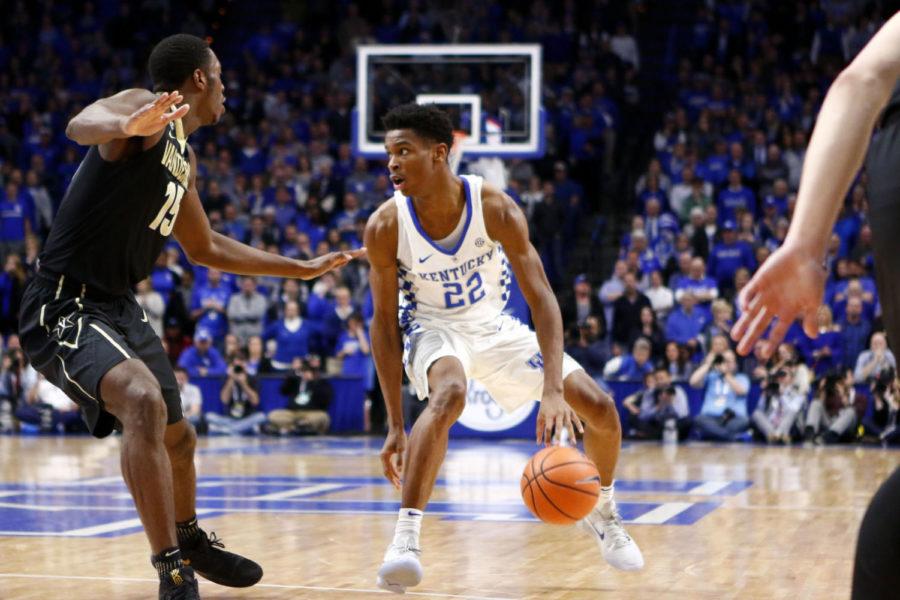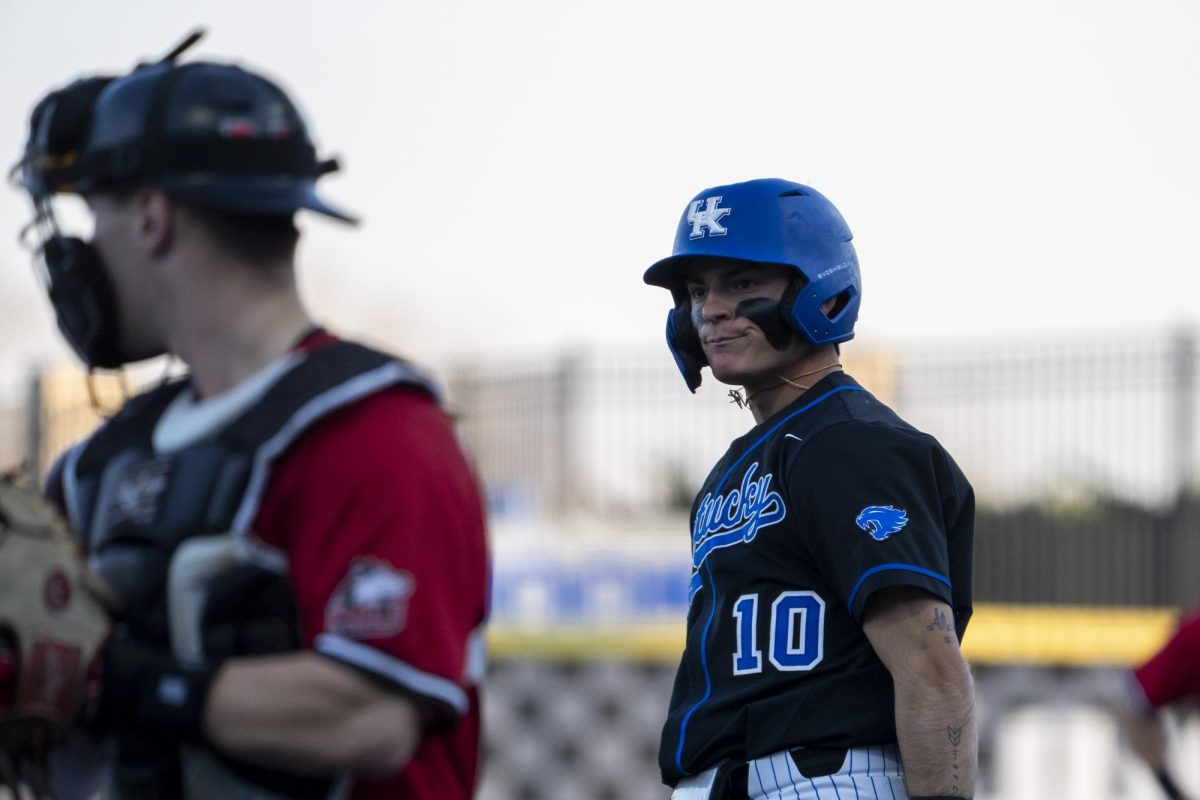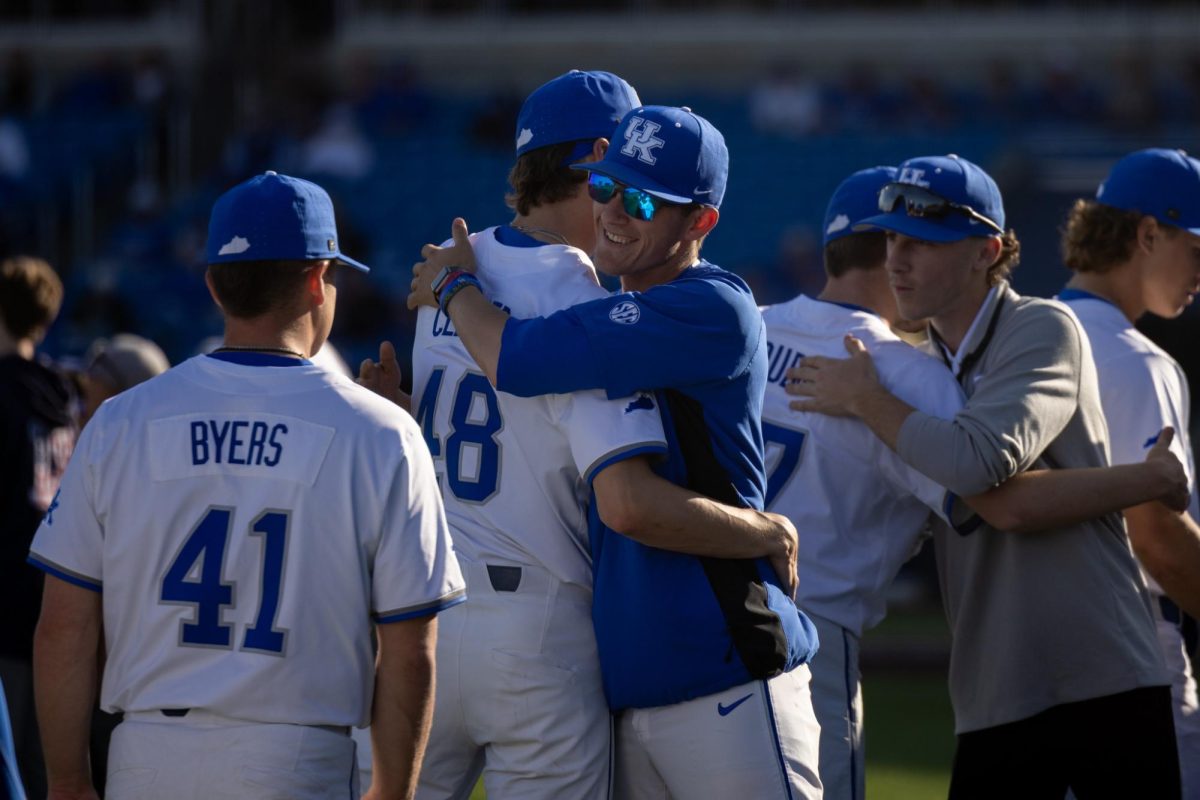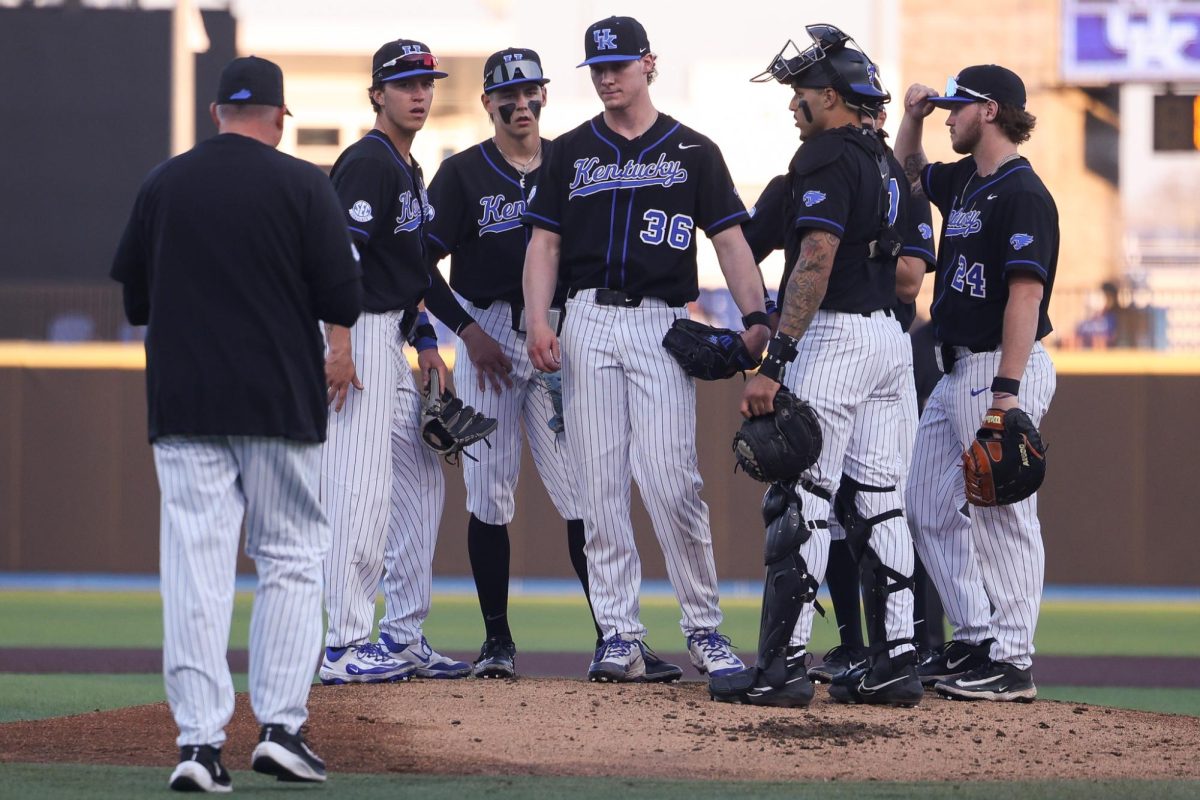Denial of Kernel reporter’s interview access gains national coverage; mixed reactions from fans, journalists
August 31, 2011
National and local media outlets, professional reporting groups and scores of UK fans reacted to a story that garnered national coverage Tuesday when a Kernel reporter called two potential student athletes without going through UK Athletics.
When Kernel editor and basketball reporter Aaron Smith attempted to interview two walk-ons for the UK basketball team without first contacting Media Relations, his access to a set of one-on-one interviews with basketball players was revoked.
The Associated Press Managing Editors, a nationwide group of newspaper editors and broadcast news directors, issued a statement objecting to UK Athletics’ action.
Read the APME’s statement here
The group’s statement said the revocation of Smith’s access “amounts to no less than an attempt to bully the newspaper into submission and to censor news concerning operations of the University of Kentucky athletic department.”
Smith originally called the athletes, whose phone numbers were listed on the UK website’s directory, to confirm that they were, in fact, on the team. Freshman basketball player Anthony Davis tweeted Sunday night that they were, and Smith said he wanted to confirm the information through his own reporting.
The APME statement continued to say that the level of abuse of free speech demonstrated by the university is not tolerated at schools in other states and is “paticularly abhorrent at a taxpayer institution.”
The Associated Press Sports Editors sent a separate statement to the university, calling its decision to rescind access “disturbing on many levels.”
The statement, signed by APSE President Michael A. Anastasi, referred to the “abridgement of basic First Amendment rights to decide access issues based on what the publication writes.”
“This is a form of censorship, something institutions of higher learning should find as repulsive as the media do,” Anastasi said in the statement.
“Ultimately, the decision to talk to the media rests with the athlete and if you don’t want your players to talk to the media without the SID office interceding then you have to get that message to the athletes. And, we believe you did as the athletes in question chose not to talk.”
He also said that if the purpose of the one-on-one interview event was to train his players in dealing with the media, as Peevy was quoted saying, then the interview would be part of a learning process, and “maybe you can see that how this type of punishment is out of line with what you are trying to accomplish.”
Read the APSE’s statement here.
The local chapter of the Society of Professional Journalists, an organization comprised of reporters dedicated to ensuring the free press, also issued a statement saying its members were “strongly disappointed in the actions taken by the University of Kentucky Athletics Department against the independent student newspaper.”
“The Kentucky Kernel sports reporter was carrying out one of the most basic and important duties a journalist is charged with — trying to separate fact from fiction,” said Adam Baker, SPJ president for the Bluegrass Pro Chapter, in the statement sent to the Kernel via email.
Baker said UK officials can’t stop a reporter from asking a question, and their “excessive punishment” shouldn’t have been implemented, is an abuse of power and is a “shameful blow to the First Amendment.”
“Punishing a journalist for doing his or her job is unacceptable,” he said.
UK’s SPJ chapter president Brooke McCloud released a statement as well.
“We are taught as young journalists to serve those who seek information and deliver that information with the absolute truth,” McCloud said. “It is the foundation of democracy.
Related Articles:
Online reactions to UK Athletics, Kernel disagreement
UK Athletics revokes Kernel’s access to basketball interviews
“I find it a great shame that the same department I grew up supporting and admiring is denying mine and my peers’ journalistic and democratic rights.”
The Bluegrass SPJ chapter also urged UK officials to reverse their decision.
Fan reactions to the situation have been mixed. Some responded on Twitter Monday night and Tuesday with the hashtag #FreeKernel, while others criticized Smith’s action, saying he and other media should not be allowed to call players directly.
Associate Athletic Director for Media Relations DeWayne Peevy, who revoked Smith’s media access, said that UK’s policy is in place mainly to protect athletes from receiving an overwhelming amount of phone calls from the media. Many who commented on the Kernel’s website and tweeted about the story agreed that players’ privacy should be respected.
The story was popularized on Twitter late Monday night after SI.com college football reporter Andy Staples tweeted, “Way to go, Kentucky SIDs. Nobody ever writes about the walk-ons. Someone does, and you revoke access.”
He tweeted soon after: “Until Kentucky agrees to #FreeKernel, I think I’ll revoke SI coverage of their mediocre football team.”
Gregg Doyel, a CBSSports.com national columnist, had a different view.
Via his Twitter handle, @greggdoyelcbs, he said, “Re: Kentucky. My bad! The student paper is punished for ONE session. Not the whole year. Non-story. Move on, haters.”
Peevy also responded on his Twitter account shortly after the Kernel published its story late Monday. He tweeted in response to other journalists who were commenting about the Kernel’s story, telling them to check their facts and defending his decision.
His last tweet of the night, and last tweet as of press time Tuesday, said: “Gotta love UK. No dull moments.”
Thalethia Routt, a counsel general associate in the Office of Legal Counsel at UK, posted a comment on the Kernel’s website under the Kernel’s story about the UK Athletics situation.
“Aaron (and the Kernel) got exactly what he deserved,” her comment said. “If he had any questions regarding the players’ status, he should have gone to UK Athletics. Now he knows their status and he clearly violated the rules regarding player contact. This is what happens when pretend journalist get greedy … He had unbelieveable access to the players and blew it. I’m glad UK revoked his access. There is no First Amendment violation. The Constitution demands free speech, not free access.”
When asked by the Kernel if she was the one who posted the comment, she said that she was and that she had been in a bad mood that morning.
A person with the Twitter handle @smyzo, who appears to be a UK fan, said in response to UK Media Relations looking like a bully, “Uh, media can’t go calling UK players directly, its their #1 rule. How is a 1 day ban being a bully?”
The APME, in its statement, urged UK Athletics to restore Smith’s media access, although the one-on-one interviews in question had taken place earlier that day. The APSE said the same.

























































































































































